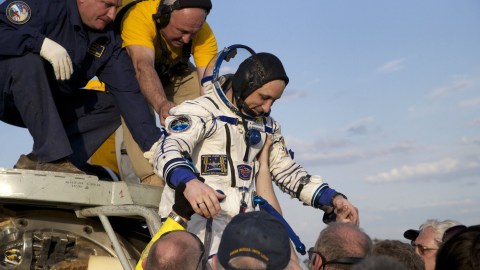Astronauts are Coming Back with Thinner Skin

Space travel wreaks havoc on the human frame. After returning to Earth, astronauts have to undergo extensive treatment to recondition their bodies for the gravity that they’d gone without for all that time in space. Things like muscle atrophy and reduced bone density are among the list of conditions often seen, but researchers have recently discovered that astronauts have been coming back with thinner skin.
A group of researchers has been tasked with figuring out why. Leading the study is professor Karsten Koenig from the Department of Biophotonics and Laser Technology at Saarland University. Koenig and team were given skin cells from several astronauts before takeoff and after they landed to find the cause behind their thinning skin, but can only offer observations.
Koenig said in an interview with Reuters:
“So far we’ve got interesting results from three astronauts. It seems that there is a strong production of collagen; so suddenly these astronauts have more collagen. It means there is some sort of anti-ageing effect, at least in the dermis — the lower part of the skin. And we found that the epidermis, in particular the part of the living cells, that this epidermis is shrinking, so the skin gets thinner.”
The explanation of what’s causing the epidermis to thin so much — as much as 20 percent after six months — still eludes researchers. What kind of protection is needed and how they can outfit a spacecraft with it are all questions that need answering if a long trip to Mars is ever to be in our future.
Add this issue to the growing list of challenges that face a Mars mission. The cancerous dust on the red planet and fueling issues seem like such a faraway concerns when pitted against ones concerning the health and wellness of the astronauts. Still, NASA and Elon Musk believe there’s hope to get there in 10 to 20 years.
Bill Nye weighs-in on the pros and cons of NASA and SpaceX.





